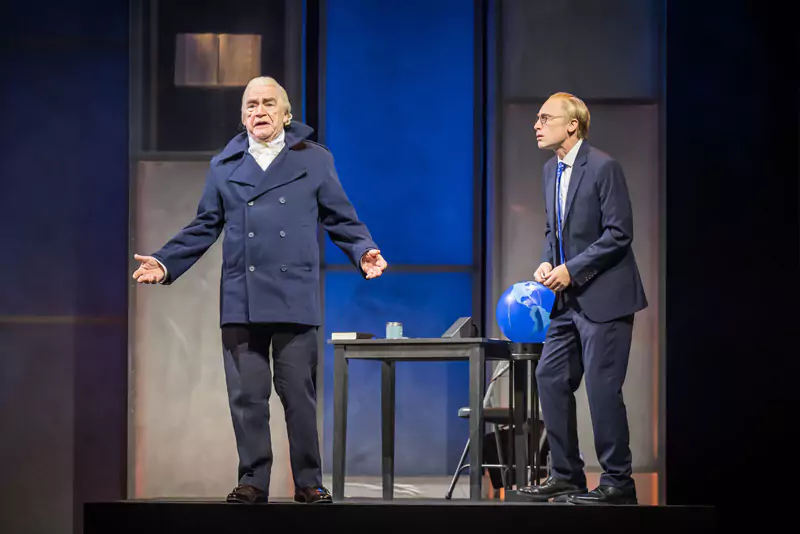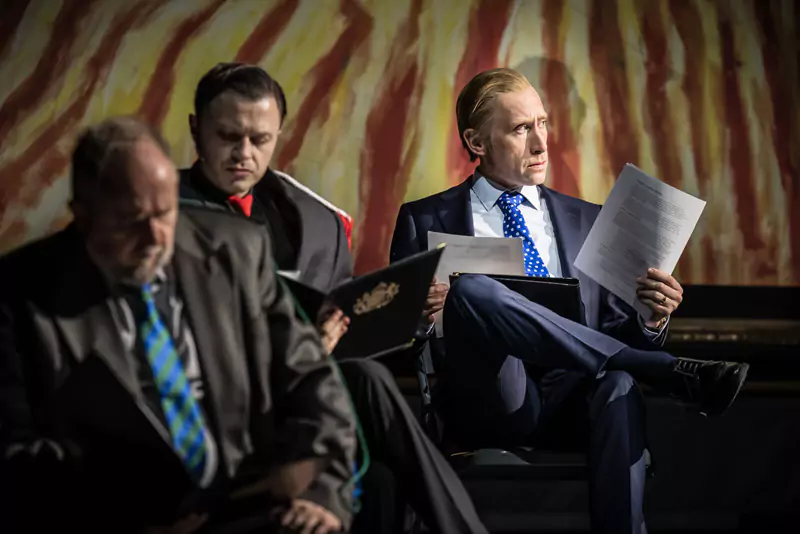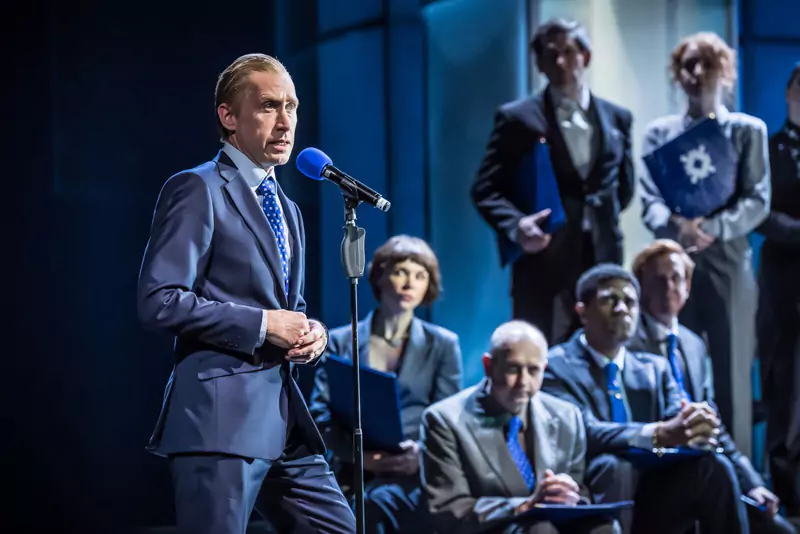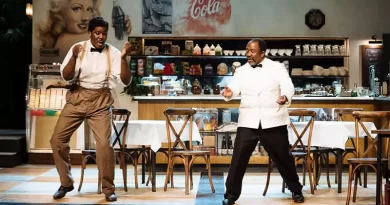“Make It Happen”, Edinburgh International Festival theatre review
Mark Brown in Edinburgh
3 August 2025
If you want to understand the current global instability – including the much-discussed “cost of living crisis” faced by millions of people living in rich Western societies – you have to start with the international banking crash of 2008. No bank was more at risk – or more at fault – in that collapse than the Royal Bank of Scotland (RBS).

Brian Cox and Sandy Grierson.
Photo credit: Marc Brenner.
Under the disastrous leadership of its CEO Fred Goodwin (nicknamed Fred ‘The Shred’ on account of his particular brand of managerial brutalism), the RBS became the biggest bank in the world. It achieved that status to a considerable degree by acquiring assets that quickly became toxic and unsellable when the bottom fell out of the dangerously precarious subprime mortgage market in the US.
These events – which led to a massive emergency intervention, including the nationalisation of RBS, by Gordon Brown’s Labour government – are the subject of Make It Happen. The latest work from the pen of acclaimed “state of the nation” playwright James Graham (the man behind such celebrated dramas as Dear England, Best of Enemies, Quiz, Privacy and Ink), the play opens the 2025 theatre programme of the Edinburgh International Festival (EIF).
A co-production between the National Theatre of Scotland, Dundee Rep and the EIF, the show – which is staged at Edinburgh’s wonderful Festival Theatre – stars the famous Scottish actor Brian Cox (whose screen roles include the media tycoon Logan Roy in the smash hit HBO television series Succession) as the ghost of the Scottish moral philosopher Adam Smith. Opposite him, playing Goodwin, is his compatriot, the always brilliant Sandy Grierson (who is fresh from his award-winning success in the beautiful Scots-Japanese stage production Confessions of a Shinagawa Monkey).

Photo credit: Marc Brenner.
Grierson gives a typically excellent performance as Goodwin, the accountant-turned-banker who – despite his working-class background in the Ferguslie council estate in the former textile town of Paisley – is a devotee of the “greed is good” strand of neoliberalism. The recklessness with which he acquires assets – including major banks such as NatWest and, ruinously, a large stake in the Dutch behemoth ABN AMRO – is accompanied by a Darth Vader-style ruthlessness in his dealings with employees.
For his part, Cox’s Smith is, by turns, humorously bewildered by 21st-century Edinburgh, and righteously indignant at the cynically selective reading of his work by the ideologues of Thatcherism and Reaganomics. Where, he asks a perplexed Goodwin, is his insistence on markets being regulated to ensure that they work for the common good?
Alongside the details of the rapid and catastrophic collapse of RBS, these nicely wrought and beautifully performed exchanges are the substance of Graham’s play. Sadly, however, they run in parallel to a musical element – mainly fragments of pop songs sung by a chorus of top-notch, but under-utilized, actors – that rarely connects with or illuminates the subject.
Goodwin was – perfectly reasonably – accused of artificially inflating the RBS. Sadly, the same can be said of director Andrew Panton in relation to the play.
If the musical numbers are superfluous, so, too, is the overly dramatic use of sound and big-screen projections. There are fine performances in supporting character roles from tremendous actors such as Ann Louise Ross and Callum Cuthbertson. However – like a person wearing a suit that is several sizes too large for them – they always seem at risk of being subsumed by the production’s general grandiloquence.
Too often over the years we have seen the Scottish contribution to the EIF theatre programme – which, unfairly, is required to be a world premiere – struggle to measure up to the big stage expectations of the Festival. The irony of this world premiere – which plays until August 9 – is that, inside its unwieldy and unbalanced production, there seems to be a smaller, more coherent play trying to get out.









